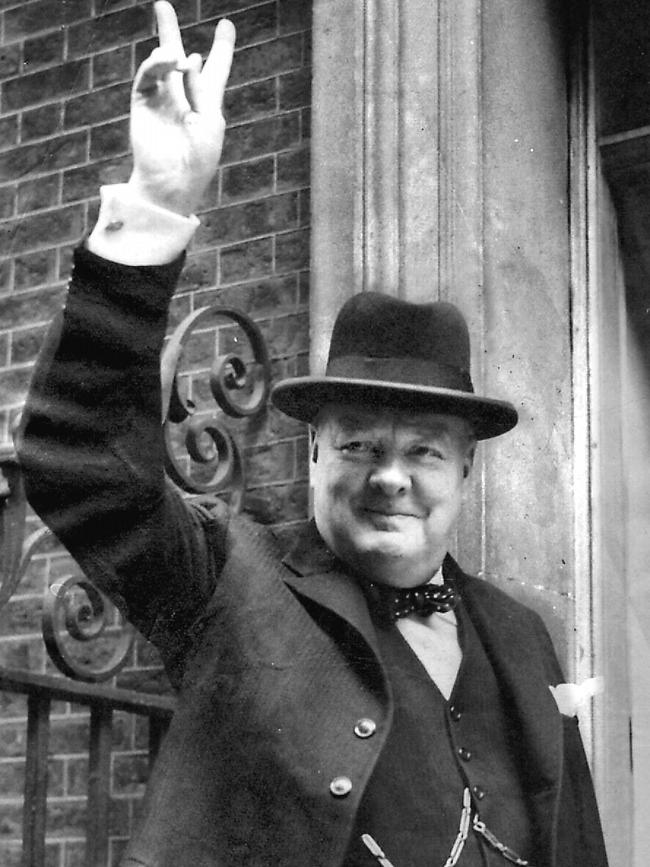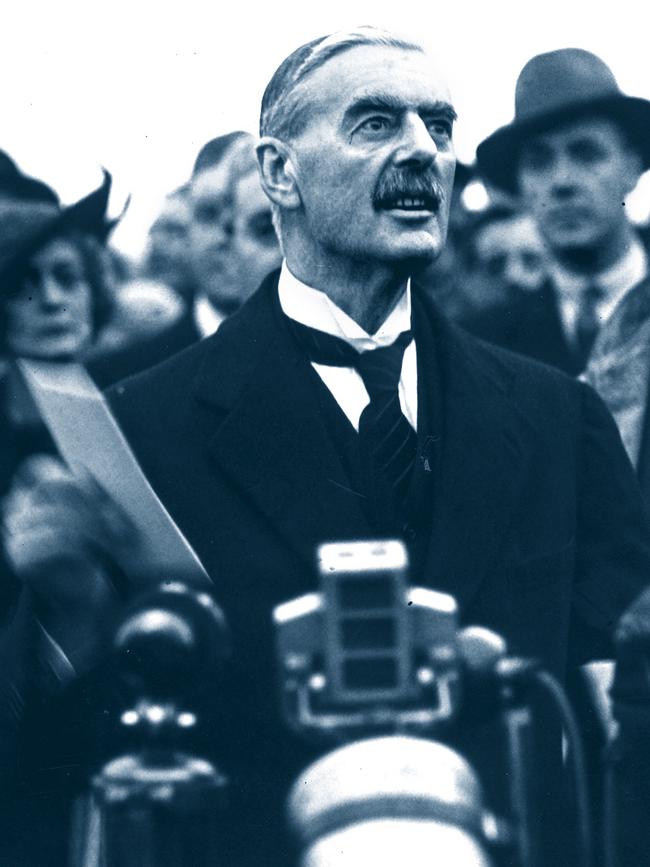
The Nazis hid their crimes. Hamas’s killers filmed theirs. For the first time in the history of mass murder, the murderers wanted their faces known, their deeds recorded.
Watching the videos, one after the other, is not only horrifying. It shattered my comforting illusions. Particularly this one. Drummed into me as a student, I repeated it on these pages immediately after October 7 last year.
Real evil, I said, dehumanises its victims: stripped of their humanity, they are no longer people. They are, to use Gloucester’s words in King Lear, as “flies to wanton boys”, to be slaughtered without sin or guilt.
Dehumanisation was, I believed, indispensable because, otherwise, who would commit such crimes? Who – beside a few sadists and lunatics – could do those things to other human beings?
Now I know that is an illusion. For the footage leaves it beyond doubt: the killers don’t just realise their victims are human beings; they relish it. They relish the all too human fear, the pain, the shame at pleading desperately for mercy for oneself and one’s children. And it is precisely the fact they are torturing, hurting and humiliating real, living, human beings that fills the killers with glee.
Looking back, it is easy enough to see the illusion’s origins. Whatever it may claim, our age doesn’t believe in evil.
The Oxford English Dictionary tells us “In modern colloquial English ‘evil’ is little used, such currency as it has being due to literary influence”. Evil, according to the OED, is simply an antiquated synonym for bad. The rhetorical vestige of a prescientific, credulous past, the term’s only purpose is to express heightened disapproval, elevating bad to “very, very bad”.
Nor are the people who commit horrifying acts evil. They are ill. Perhaps their troubles are personal, or perhaps they arise from society’s failings and history’s injustices. Either way, apply the appropriate cures – from neuroscience, psychology, public policy or international relations – and all will be well.
Immanuel Kant, as usual, knew better. When he spoke of “radical evil”, he didn’t mean evil that is extreme; he meant evil that is at our root, an inherent part of what it is to be human. Reason makes it possible for humanity to soar. Evil, when it can, drives it to depths so deep as to be utterly unfathomable.
It requires, Kant argued, no “formal proof” to show that the risks it creates are ever present: humanity’s entire record provides overwhelming evidence. As Claudio puts it in Shakespeare’s Measure for Measure:
Our natures do pursue
Like rats that ravin down their proper bane
A thirsty evil; and when we drink we die.
That in no way diminishes the moral responsibility of the perpetrators, who are, like all human beings, endowed with reason. Even less does it reduce our collective responsibility to hold the perpetrators to account, prevent them committing new crimes and deter any who may follow in their wake.
On the contrary, the very fact the capacity for boundless cruelty is always there makes thwarting evil imperative. And, Kant famously added, “for any person who acts rationally, to will the end is to will the means”.
In other words, a rational person who genuinely seeks that goal must – and Kant stresses must – accept what is required to achieve it. Anything else is not to “will the end”: it is, at best, to idly wish it, “like the dreams of children and the fantasies of the feeble-minded”.
That, ever since October 7 last year, has been our government’s problem. Time and again, it says “Hamas must play no role in Gaza’s future governance”.
But like the children who dream and the feeble-minded who fantasise, it has absolutely no way of achieving that objective – and it adamantly rejects Israel’s option of systematically “degrading and destroying” Hamas’s (and now Hezbollah’s) offensive capabilities, as was done with al-Qa’ida and Islamic State.


Perhaps there is another credible way of disabling a firmly entrenched, heavily armed and ruthlessly evil terrorist group that shelters behind hostages and human shields. If so, the government should spell it out. Instead, it has, as Winston Churchill said of Neville Chamberlain’s hapless cabinet, remained “trapped in paradox, decided only to be undecided, resolved to be irresolute, adamant for drift, solid for fluidity, all-powerful to be impotent”.
Nor is that solely the case internationally. At home, it has stood by as attacks on Jews escalate to levels never seen in this country, shredding our much vaunted multiculturalism.
It is true that Australians have not always rapturously welcomed other ethnicities. But there has long been a qualified acceptance, an “indifference which is not apathy” that DH Lawrence portrayed as quintessentially, laconically, Australian. Now, openly exterminationist slogans are yelled out every day in our public places, and – stripping away feeble cover-ups – October 7 is celebrated as a triumph. Meanwhile, confusing handwaving with being even-handed, the government mouths platitudes that swirl helplessly in the wind.
Blaming that on electorally minded hypocrisy would be all too easy. The far more terrifying, and far more accurate, reality is that the government believes what it says.
It is, of course, hardly alone. With a handful of shining exceptions, much of the West is no better. Maybe we should thank Hamas for that: it has exposed the extent of the rot. And who knows, to expose the rot may open the road to addressing it.
In 1943, as World War II raged, Brian Penton’s Advance Australia – Where? took a cold, hard look at this country and its prospects. A brilliant writer and influential editor, Penton, who made The Daily Telegraph into a powerhouse, was not unduly kind about his fellow countrymen.
Complacency had been elevated into a religion, he wrote, resulting in a disastrous lack of military preparedness. As for the nation’s leaders, they were, all too often, “mincing chameleons of cant and commonplaces”. Until it was far too late, they had ignored the mounting threats. Even worse, having decided “the job is too big, the adjustments too painful”, they might well ignore them again in the future, “leaving the remnants of Australia Felix to the crows, and rabbits, and drifting sand”.
But Australia had this going for it: the “qualities of mind, but mainly of heart, ordinary Australians had developed in their isolation and unsophistication” – a disabused realism, a contempt for fanatics, an ethic of comradeship and loyalty.
However battered, they are still there. With the anniversary of October 7 reminding us that evil is everywhere on the march, it is those virtues that offer, as Penton hoped, “a basis on which better leaders can build a better nation”. And with that, a better and safer world.




This I will never forget: the murderers’ faces. They aren’t searching for soldiers. They are looking for babies and children. They cheer when they capture the old and weak. They gloat when they seize young women. And, most harrowing of all, they are laughing, laughing, laughing.